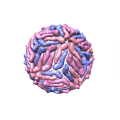DE FAAKTO OUTBREAK INTELLIGENCE
SITUATION-JAPANESE ENCEPHALITIS TAIWAN
BACKGROUND-TAIWAN CENTER FOR DISEASE CONTROL IS REPORTING THE FIRST CASE OF JAPANESE ENCEPHALITIS THIS SEASON
Taiwan Center for Disease Control & The Taipei Times are Reporting
Key Points
- Taiwan CDC confirmed this year’s 1st Japanese encephalitis case
- People are urged to take precautionary measures against mosquito bites as the disease’s peak season approaches
- A man in his 60s from Kaohsiung started showing symptoms of fever, headache, convulsions and loss of consciousness
- It has been confirmed that he was infected with Japanese encephalitis Virus
- He has since slipped into a coma and is being treated at an intensive care unit
- The man had visited a natural recreational area near a pig farm and meat market as well as rice paddies (Pigs and Waterbirds carry the Japanese Encephalitis Virus which is spread Via mosquito bites
- The Japanese encephalitis season lasts from May to October, with June and July the peak period
- Most people show mild to no symptoms at all
- Some cases, the patient might develop a headache, fever or aseptic meningitis, which could progress to loss of consciousness, seizures and ultimately death
- 30 to 50 percent of those who survive the serious symptoms are left with permanent brain damage, muscle weakness, learning difficulties or personality changes
- Young children, elderly people and people with weak immune systems are at higher risk of developing serious symptoms
- Vaccination is the best prevention method
- Children above 15 months should get vaccinated at local health departments or contracted hospitals
- People should avoid rice paddies, ponds, trenches, animal farms and other places mosquitoes inhabit, especially at dawn and dusk, when they are most active, and take protective measures against mosquito bites (Taipei Times)
About Japanese Encephalitis Virus
- Japanese encephalitis virus (JEV) is a flavivirus related to dengue, yellow fever and West Nile viruses
- JEV is spread by mosquitoes
- JEV is the main cause of viral encephalitis in many countries of Asia
- 68 000 JEV clinical cases every year in Asia
- Symptomatic Japanese encephalitis (JE) is rare
- The fatality rate among those with encephalitis can be as high as 30%
- Permanent neurologic or psychiatric sequelae can occur in 30%–50% of those with encephalitis
- 24 countries in the WHO South-East Asia and Western Pacific regions have endemic JEV transmission, exposing more than 3 billion people to risks of infection
- There is no cure for the disease
- Treatment is focused on relieving severe clinical signs
- Safe and effective vaccines are available to prevent JEV
- WHO recommends that JEV vaccination be integrated into national immunization schedules (WHO)
Prevention
- Effective prevention of Japanese Encephalitis virus is to prevent mosquito bites
- Use insect repellent
- Wear long-sleeved shirts and pants
- Treat clothing and gear
- Get vaccinated before traveling (CDC)
Japanese Encephalitis Vaccine
- Inactivated Vero cell culture-derived Japanese encephalitis (JE) vaccine (manufactured as IXIARO) is the only JE vaccine licensed and available in the United States
- Approved for use in people aged 17 years and older and in May 2013 for use in children 2 months through 16 years of age
- Other JE vaccines are manufactured and used in other countries but are not licensed for use in the United States (CDC)
Transmission of Japanese Encephalitis Virus
- Japanese encephalitis (JE) virus, a flavivirus, is closely related to West Nile and St. Louis encephalitis viruses
- JE virus is transmitted to humans through the bite of infected Culex species mosquitoes, particularly Culex tritaeniorhynchus
- The virus is maintained in a cycle between mosquitoes and vertebrate hosts, primarily pigs and wading birds (CDC)
Taipei Times http://www.taipeitimes.com/News/taiwan/archives/2019/05/19/2003715407
WHO Fact Sheet https://www.who.int/news-room/fact-sheets/detail/japanese-encephalitis
U.S. Center for Disease Control https://www.cdc.gov/japaneseencephalitis/index.html






